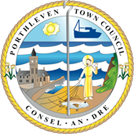Recent Posts
News Categories
News Archives
- May 2024
- April 2024
- March 2024
- February 2024
- January 2024
- December 2023
- November 2023
- October 2023
- September 2023
- August 2023
- July 2023
- June 2023
- May 2023
- April 2023
- March 2023
- February 2023
- January 2023
- December 2022
- November 2022
- October 2022
- September 2022
- August 2022
- July 2022
- June 2022
- May 2022
- April 2022
- March 2022
- February 2022
- January 2022
- December 2021
- November 2021
- October 2021
- September 2021
- August 2021
- July 2021
- June 2021
- May 2021
- April 2021
- March 2021
- February 2021
- January 2021
- December 2020
- November 2020
- October 2020
- September 2020
- August 2020
- July 2020
- June 2020
- May 2020
- April 2020
- March 2020
- February 2020
- January 2020
- December 2019
- November 2019
- September 2019
- August 2019
- July 2019
- June 2019
- May 2019
- April 2019
- March 2019
- October 2018
- September 2018
- August 2018
- July 2018
- June 2018
- May 2018
March 17, 2020
News
Government Guidance to protect yourself and community
1) Wash your hands frequently and catch coughs and sneezes in a tissue
One of the ways we become infected, or pass on viruses to others, is through the droplets in coughs and sneezes – for instance through someone who has a virus, coughing onto their hand, then touching a door handle.
A simple and effective way to protect yourself and others from coronavirus is by making sure you wash your hands frequently with soap and water, or a hand sanitiser if you are out and about. It’s particularly important to wash your hands once you get home or arrive at work or before you prepare or eat food.
If you are unwell it’s vital that you catch your coughs and sneezes in a tissue, or use your arm if needed, throw the tissues away, then wash your hands.
2) Be prepared to self-isolate
As COVID-19 is now spreading in the community, people with symptoms of coronavirus should self-isolate at home.
This means staying indoors and avoiding contact with other people for seven days after the onset of symptoms (new, continuous cough and/or high temperature). People can return to normal activity after seven days if they do not have a temperature and feel like they are improving.
The majority of people who catch COVID-19 will not need to see a health professional as their symptoms will be mild, such as those you might expect with a cold or flu and treatable at home.
3) Plan ahead based on your situation
There are a number of ways to slow down an infectious disease outbreak. Well-established tactics include self-isolation as mentioned above, as well as measures sometimes referred to as “social distancing.”
One example of social distancing could be encouraging more working from home for instance, or another option could involve urging people to continue to go to work or school as usual, but reduce social activity or non-essential travel.
4) Use health services wisely
Now that COVID-19 is considered to be spreading in the community this could mean the NHS is busier than usual so it’s important to think carefully about the NHS services you use.
If you start to experience symptoms and believe you could have coronavirus, do not go to a GP surgery, pharmacy or hospital as you could pass the infection to others. Visit NHS 111 online or call NHS 111 if you need to speak to someone.
Services like 999 or Accident and Emergency should only be used for genuine emergencies.
5) Stay up to date using trusted sources of information
Since COVID-19 began to spread quickly in China, it has been a major global news story and with this level of media and public interest it’s inevitable that myths, misinformation and rumours will be shared online.
The UK Government and the NHS will keep people informed of new advice and developments.
